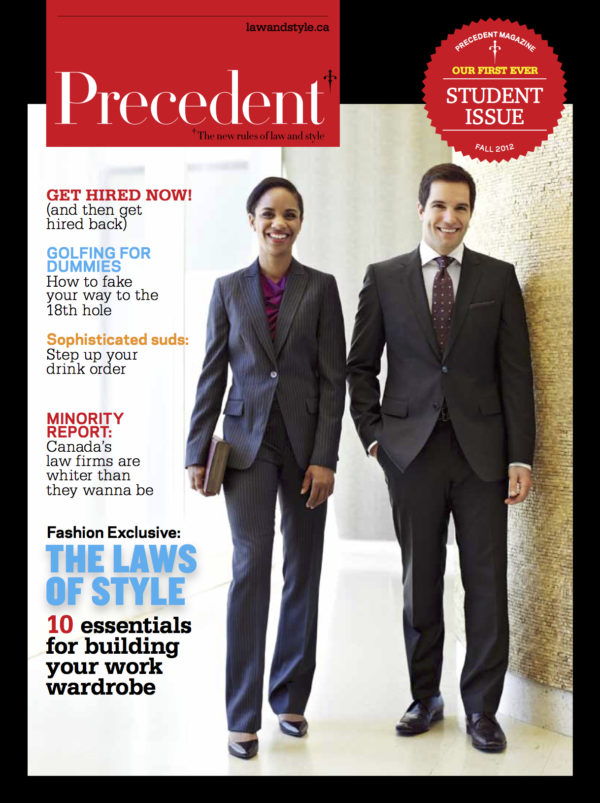
The money dilemma
Clara Lee is a 24-year-old law student from Toronto entering her third year at Windsor. She expects to earn $60,000 while articling and even more after she gets a job, but she’ll also be sitting on $35,000 in student loans. She wants to buy a condo as soon as possible and plans to hold onto it after she gets married and buys a house. Should she get rid of those loans or save for a down payment?
The plan
It’s great that Lee is already planning for her future — most of her classmates are probably debating whether to drop their first paycheque on a 42-inch or a 50-inch. But she may be getting ahead of herself, and her money.
She needs to start at the beginning, and that means tracking her spending. “It doesn’t have to be complicated, with an Excel spreadsheet recording every Starbucks coffee,” says Shona Bertrand, a Toronto-based wealth management advisor who specializes in working with lawyers. “You just want to create an awareness of your spending.”
After Lee figures out what kind of money is left over after each pay period, she can start plunking some of that surplus down on those pesky loans. “There’s a cost to debt [in the interest you pay]. You may want to get rid of that first,” suggests Vancouver-based certified financial planner Cindy David. But don’t just focus on student loans; other kinds of debt, such as credit card balances, generally come with a much higher interest rate. The simple rule: pay off your most expensive debt first.
Next, she should protect her future-earning ability by purchas- ing life, disability and critical illness insurance — she won’t need them for a while, hopefully, but they’re more affordable when she’s young and healthy.
There’s no need to wait to start saving: Lee can open up a registered retirement savings plan (RRSP) now. Bertrand says that someone earning $75,000 a year who invests $1,000 a month in an RRSP would get about a $4,000 tax rebate at the end of the year. (She can use this rebate to pay down her loans.) Plus, after five years, if the investments grow by just three percent annually, she’ll have saved around $65,000.
Then, she can take advantage of the federal Home Buyers’ Plan, which allows withdrawals of up to $25,000 from RRSPs, penalty- free, to use towards a down payment. (The money must be paid back within 15 years and a payment has to be made every year.)
When putting together a down payment, she’ll have to factor in so-called closing costs. They’ll run about five percent of the price of a condo and will include land transfer tax, mortgage insurance (if the down payment is less than 20 percent), moving fees and, of course, legal fees.
By tracking her spending, making smart decisions and earning a good salary, Lee will be buying that condo in no time. As for that wedding in the longer-term future? That could cost as much as a law degree if she’s not careful.

This story is from the 2012 edition of PrecedentJD Magazine
Image courtesy of Rocco Montoya/iStockphoto
